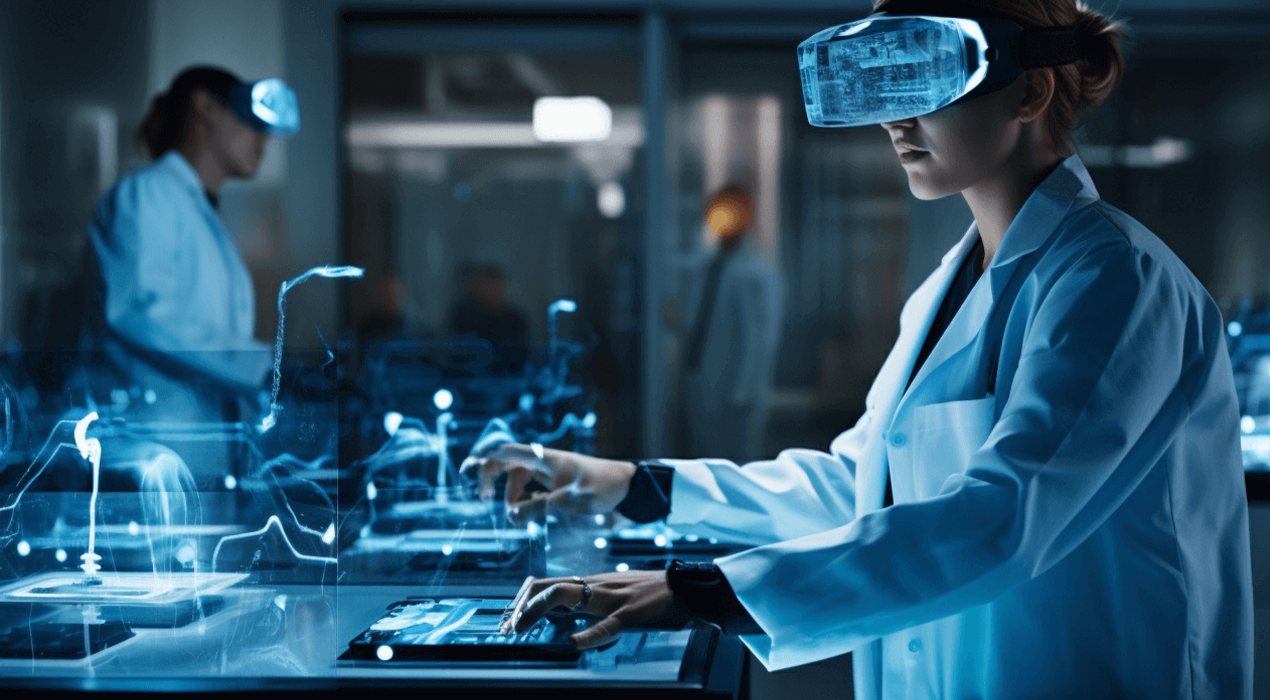
The healthcare industry is embracing VR, AR, and MR as groundbreaking tools for digital transformation. These immersive solutions allow healthcare professionals to gain hands-on experience in safe, controlled environments enhancing skills and reducing the risks associated with real-world training.
Enhanced Training and Simulation
- VR and MR enable healthcare professionals to practice complex procedures and develop diagnostic skills in simulated scenarios that mimic real-life situations.
- VR training improves retention by up to 75%, compared to traditional methods at 10% (Harvard Business Review).
- Cleveland Clinic and Case Western Reserve University’s VR anatomy modules show 50% faster learning and improved comprehension.
- VR-trained surgeons perform procedures 29% faster and with six times fewer errors (JAMA).
- These immersive tools not only improve outcomes but also accelerate training timelines, helping address the global shortage of healthcare professionals.
Cost-Effective Digital Transformation
Traditional medical training is expensive requiring models, labs, and faculty time. VR and MR minimize these needs by offering scalable, reusable training tools.
- PwC: 25% reduction in training costs with VR.
- Accenture: VR training is 20% less costly than conventional methods.
- Mayo Clinic: 30% cost reduction after implementing VR for surgical staff.
- This makes immersive solutions a smart, cost-efficient approach for large-scale healthcare training.
Global Adoption and Real-World Applications
- UK: NHS uses VR to train staff in intensive care and emergency response.
- India: Apollo Hospitals leverages VR for cardiology simulations.
- US: Leading medical schools integrate AR, VR, and MR in curriculum for better hands-on learning.
- The global market for AR/VR/MR in healthcare training is projected to grow at 30% annually through 2030 (Grand View Research).
Conclusion
VR and MR are not just technological tools they are reshaping healthcare training with cost-effective, scalable, and immersive solutions. By enhancing retention, speeding up training, and improving patient outcomes, these technologies are preparing healthcare professionals for the challenges of modern medicine.
Our immersive solutions can play a critical role in transforming healthcare training, offering measurable benefits in cost savings, efficiency, and skill development.
